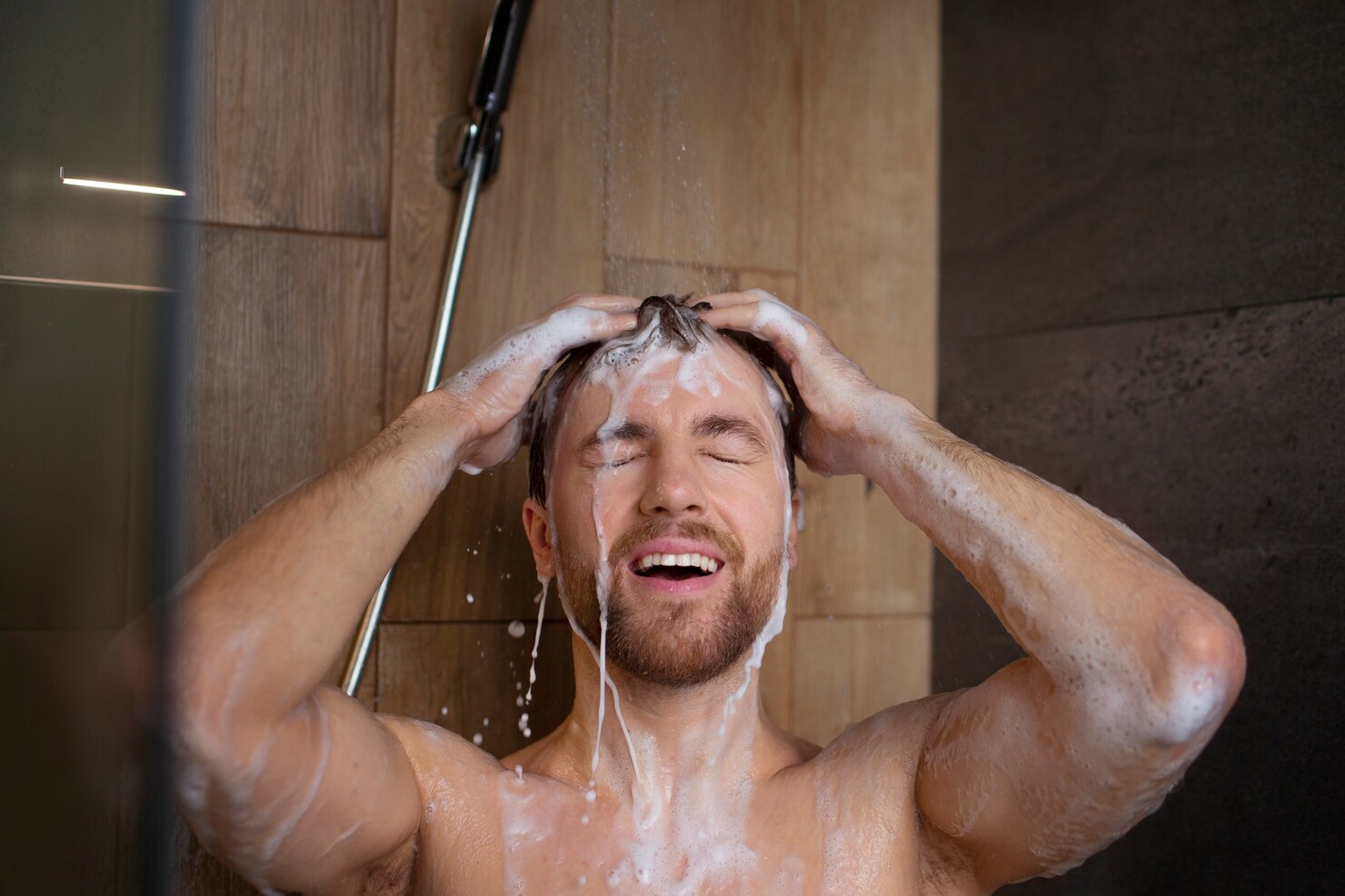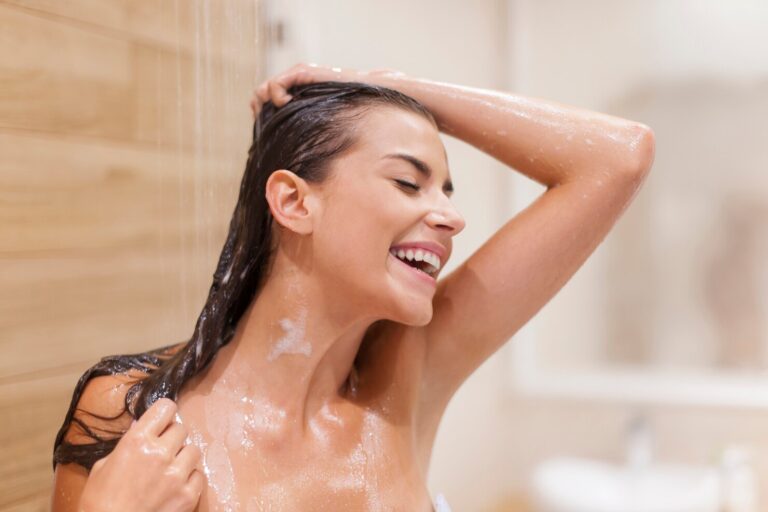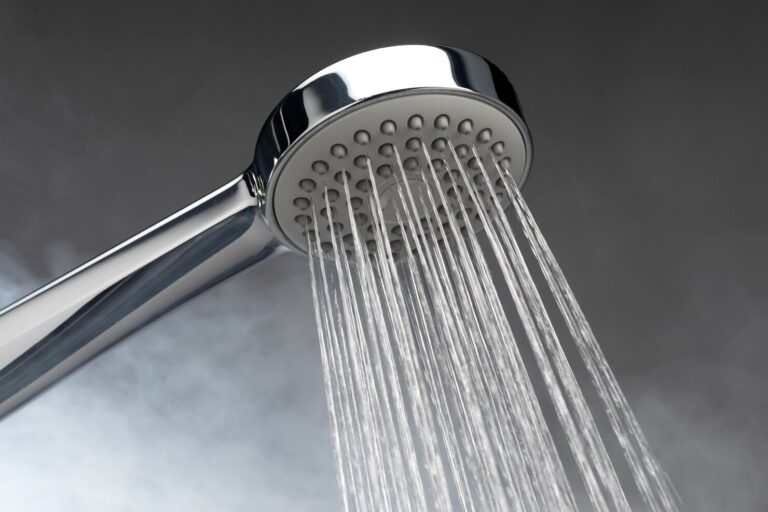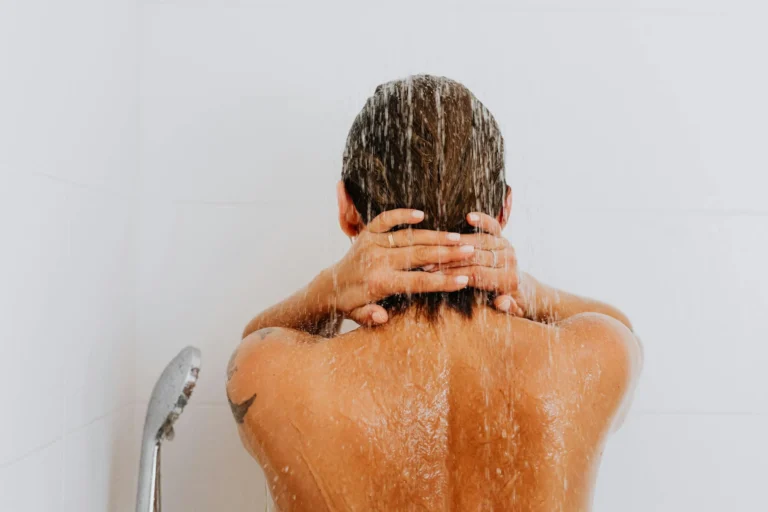Why Do I Hate Showering
Individuals who experience aversion or avoidance towards showering may find this article beneficial.
The content here delves into the underlying reasons for this sentiment, which can range from sensory issues to mental health concerns.
Furthermore, the significance of personal hygiene, the advantages associated with showering, and the potential ramifications of neglecting this practice will be discussed.
Practical suggestions for overcoming an aversion to showering and maintaining proper hygiene without relying on showering will also be provided.
Read on for a more comprehensive understanding of these topics.
Why Do People Shower?
Individuals shower primarily to maintain personal hygiene, adhering to the routine of cleansing the body to ensure overall cleanliness and well-being.
Showering is commonly perceived as a fundamental element of daily grooming practices, fostering a sense of freshness and revitalization. Plus personal hygiene, societal norms and expectations influence the frequency and significance attributed to showering. Individuals may experience pressure to align with cleanliness standards prevalent in their cultural or professional milieu.
Furthermore, the act of showering can function as a moment of relaxation and self-care, offering a brief respite from the exigencies of daily life and an opportunity to unwind.

The Importance of Personal Hygiene
The significance of personal hygiene cannot be overstated, as it plays a pivotal role in upholding overall health, enhancing self-esteem, and conforming to societal standards.
What Are the Benefits of Showering?
Showering provides a myriad of advantages, such as enhancing skin and hair health, inducing relaxation, and fostering a positive mindset at the beginning or end of a day.
The warmth of the water during a shower aids in opening up pores, facilitating thorough cleansing and removal of dirt and oils, thus preventing skin breakouts and irritations. Additionally, showering promotes improved blood circulation, facilitating the transportation of essential nutrients and oxygen to the skin and scalp, consequently resulting in a luminous and healthy complexion.
Moreover, the water pressure from a shower serves to massage the scalp, enhancing circulation and potentially stimulating hair growth. Consistent inclusion of showers in one’s routine can yield benefits such as radiant skin, healthy hair, and an overall rejuvenated sensation.
What Are the Consequences of Not Showering?
Failure to maintain proper hygiene practices, such as regular showering, can result in a range of adverse outcomes, including discomfort, potential health risks, and a decline in personal hygiene standards.
It is essential to adhere to a routine of regular showering as a fundamental aspect of upholding good hygiene and preserving skin cleanliness. When an individual disregards the necessity of regular showers, the skin becomes susceptible to the accumulation of dirt, bacteria, and sweat, which can lead to skin irritations, acne outbreaks, and body odor.
The omission of routine showers can facilitate the proliferation of harmful bacteria on the body, thereby heightening the susceptibility to infections. Plus the physical health implications, the absence of regular showering can also have an impact on one’s mental well-being. The sensation of being unkempt and unclean can undermine self-confidence and overall mood.
Reasons Why Some People Hate Showering
There are various underlying reasons why certain individuals may harbor negative sentiments towards the act of showering, encompassing psychological factors, mental health conditions, physical discomfort, and avoidance behaviors.
1. Sensory Overload
For individuals with sensory sensitivities, the act of showering may elicit sensory overload, resulting in notable discomfort and stress. This heightened level of sensory input can prove to be overwhelming, as the auditory cues of running water, tactile sensations from water droplets contacting the skin, and olfactory stimuli from soaps and shampoos collectively contribute to the intensity of the experience.
Furthermore, factors such as temperature fluctuations in the shower, bright lighting, and slippery surfaces can exacerbate sensations of discomfort and anxiety. Individuals experiencing sensory overload during showering are encouraged to establish a soothing and predictable routine. This may involve utilizing familiar products or incorporating dimmer lighting to regulate the shower environment effectively.
2. Fear of Water or Drowning
Aquaphobia, a fear of water or drowning, can serve as a substantial deterrent for certain individuals when it comes to engaging in the act of showering.
Individuals afflicted with aquaphobia may endure heightened levels of anxiety and panic attacks upon facing the prospect of entering a shower. This fear tends to be deeply rooted and can trace back to previous traumatic encounters or learned responses. Consequently, those grappling with aquaphobia frequently adopt condensed, superficial hygienic practices to minimize their exposure to water.
Some individuals may go to extensive lengths to completely circumvent the act of showering, favoring alternative approaches to maintaining personal hygiene. The repercussions of aquaphobia on showering routines can evoke sentiments of shame and embarrassment, further intensifying avoidance patterns.
3. Body Image Issues
Body image concerns can result in heightened self-awareness and a reluctance to participate in showering activities. This heightened self-awareness may be demonstrated through behaviors such as avoiding communal showers or spending excessive amounts of time scrutinizing perceived flaws in the mirror.
Individuals grappling with low self-esteem may find it challenging to feel at ease in their own bodies, thus viewing the act of showering as a formidable undertaking. These sentiments of inadequacy can intensify during the showering process, particularly when exposed to harsh lighting and reflections that highlight perceived imperfections. Consequently, individuals may develop rituals or avoidance mechanisms to manage the negative thoughts and emotions associated with body image issues.
4. Mental Health Conditions
Mental health conditions, such as depression and anxiety, can manifest in procrastination and an aversion to maintaining personal hygiene habits, such as showering.
Individuals grappling with these conditions may encounter difficulties in mustering the motivation to partake in basic hygiene routines, like showering. The mental and emotional energy required to carry out mundane tasks can feel overwhelmingly depleting, rendering a seemingly straightforward activity like showering as an intimidating and burdensome chore.
Moreover, anxiety can compound these challenges, inducing feelings of being inundated by the mere thought of stepping into the shower and amplifying stress levels during the process. Procrastination, stemming from these mental health hurdles, can further compound the issue by postponing essential self-care practices.
How to Overcome the Dislike of Showering
Addressing the aversion to showering requires the utilization of a range of strategies, such as seeking professional therapy, establishing a conducive environment, and integrating practical self-care techniques.
1. Seek Professional Help
Engaging professional assistance, such as cognitive behavioral therapy, offers an effective approach to addressing the underlying factors associated with the aversion to showering.
Therapists specialized in cognitive behavioral therapy are equipped to help individuals recognize and challenge negative cognitive patterns that may be contributing to their aversion to showering. Through structured therapy sessions, individuals can acquire coping mechanisms and relaxation techniques to effectively manage anxiety or sensory sensitivities linked to bathing. Exposure therapy, a frequently used technique in CBT, can aid in systematically desensitizing individuals to the stimuli triggering their aversion to showering, thereby facilitating a gradual improvement in their comfort level and adherence to personal hygiene routines.
2. Create a Comfortable Environment
Enhancing the showering experience through the utilization of soothing elements such as aromatic scents and heated towels can greatly improve the overall comfort and appeal of the activity.
One method for optimizing the showering environment involves the use of essential oils or fragrance diffusers to introduce tranquilizing scents. Lavender, eucalyptus, and citrus fragrances are commonly selected for their invigorating and calming qualities.
Another technique to elevate the ambiance is the warming of towels prior to showering, which adds a touch of luxury. This can be achieved by either placing a towel in the dryer for a brief period or utilizing a towel warmer for a more spa-like experience.
Implementing these straightforward yet impactful elements enables the transformation of an ordinary shower routine into a revitalizing and indulgent ritual.
3. Try Different Showering Techniques
Exploring various showering methods, such as alternating between hot and cold water or gradually increasing exposure, can assist in overcoming aversions to showering.
Furthermore, an effective technique involves integrating aromatherapy into one’s shower routine. By adding a few drops of essential oils like lavender or eucalyptus to the shower gel, a soothing and pleasant ambiance can be created. Additionally, installing a shower speaker to play preferred music or podcasts can enhance the experience, diverting attention from any feelings of unease or discomfort.
Moreover, some individuals discover that engaging in mindfulness during showering, concentrating on the sensations of water touching the skin and the sound of it cascading, can instill a sense of tranquility and relaxation into the activity.
4. Practice Good Self-care Habits
Engaging in effective self-care habits, such as practicing self-compassion and utilizing positive reinforcement, can have a profound impact on an individual’s attitude towards showering and general well-being.
When individuals exhibit kindness and empathy towards themselves, they cultivate a favorable perception of self-care activities like showering. By reinforcing positive actions, one can establish a regimen that includes consistent personal hygiene practices, resulting in a sense of achievement and enhanced mental health.
Establishing feasible objectives and rewarding oneself upon their completion further enhances self-worth and drive. Self-compassion and positive reinforcement serve as potent instruments in fostering healthy self-care routines that cater to both the physical and psychological aspects, promoting a comprehensive approach to wellness.
Tips for Maintaining Good Hygiene without Showering
Maintaining proper hygiene without the necessity of showering is achievable by integrating alternative methods, such as utilizing dry shampoo, washcloths, and wet wipes.
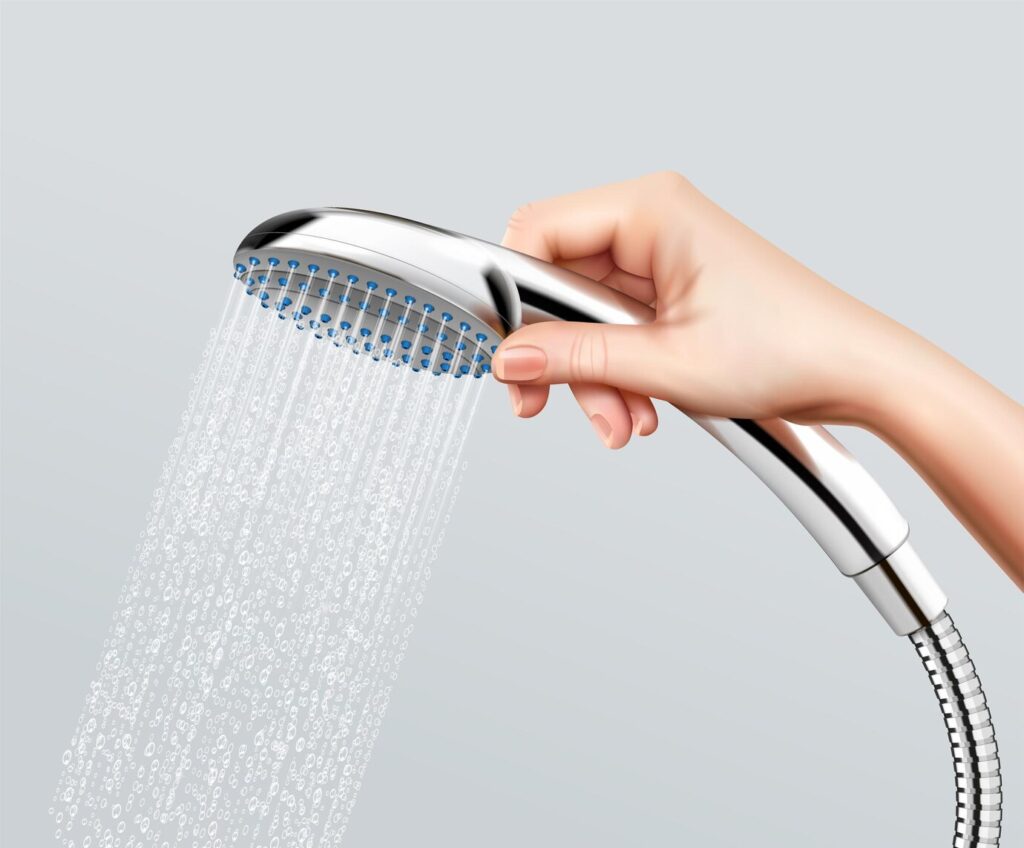
1. Use Dry Shampoo
Utilizing dry shampoo offers a convenient method to maintain the cleanliness and freshness of one’s hair without requiring a complete shower. This product serves as an efficient solution for individuals with demanding schedules, swiftly absorbing excess oil and eliminating odors from the scalp and hair, thereby providing a revitalized appearance within minutes.
Plus its cleansing properties, dry shampoo contributes to the preservation of hair color and reduces the necessity for frequent washing, which can deplete the hair’s natural oils. Moreover, it enhances hair volume and texture, facilitating ease of styling and management. Whether one is on the go, extending the time between washes, or seeking time-saving alternatives, dry shampoo proves to be a versatile and pragmatic essential in hair care routines.
2. Wash Specific Areas with a Washcloth
Employing a washcloth to cleanse specific areas serves as an efficient method for maintaining personal hygiene in situations where taking a complete shower may not be feasible. This targeted approach enables individuals to concentrate on areas that may require additional care, including the face, underarms, and intimate regions. The utilization of a washcloth facilitates a gentle exfoliation of the skin, enables the removal of dirt, oil, and sweat, and aids in the more effective prevention of body odor compared to solely relying on water.
Moreover, by employing a washcloth, individuals can enhance circulation and support skin health through the stimulation of blood flow and the promotion of skin cell rejuvenation. By integrating the use of a washcloth into one’s daily hygiene regimen, individuals can anticipate the attainment of cleaner, fresher, and healthier skin.
3. Use Wet Wipes
Wet wipes provide a convenient and efficient solution for maintaining cleanliness and hygiene without the need for a full shower. They are highly portable, making them ideal for various on-the-go scenarios such as travel, outdoor pursuits, or post-exercise at the gym. Due to their moist consistency and cleansing properties, wet wipes can swiftly rejuvenate the body, particularly in environments where access to water and soap is restricted. Their gentle nature on the skin offers a rapid remedy for eliminating dirt, sweat, and bacteria, fostering a sense of cleanliness and well-being.
4. Change Clothes Regularly
Regularly changing clothes is crucial for upholding hygiene standards and guaranteeing a continual sense of freshness during the day. It is advised to promptly change out of perspiring or damp garments as they can serve as breeding grounds for bacteria, potentially resulting in disagreeable odors. By transitioning into clean attire, individuals not only mitigate these health risks but also enhance their self-assurance and comfort levels.
The practice of regularly changing clothes plays a pivotal role in preventing skin irritations and infections by reducing the accumulation of dirt and perspiration on the body. This seemingly mundane routine can significantly contribute to an individual’s holistic well-being and personal grooming standards.
Frequently Asked Questions
Why do I hate showering?
There could be various reasons why someone might hate showering. Some common reasons include a fear of water, a lack of time or energy, body image issues, or even a lack of access to clean water or a comfortable shower space.
Is it normal to hate showering?
Yes, it is normal to dislike or hate showering. Everyone has their own personal preferences and routines when it comes to personal hygiene. It is important to find a showering routine that works for you and makes you feel comfortable and clean.
How can I motivate myself to shower?
One way to motivate yourself to shower is to make it a part of your daily routine. Set a specific time for showering and stick to it. You can also try using scented products or playing your favorite music to make the experience more enjoyable.
What can I do if I don’t have time to shower?
If you don’t have time for a full shower, you can try using dry shampoo, body wipes, or a washcloth to freshen up quickly. It is also important to prioritize your time and make showering a part of your self-care routine.
How can I deal with my fear of water while showering?
If you have a fear of water, it is important to address it and seek help if necessary. You can also try taking shorter showers or using a bath instead. Gradually exposing yourself to water in a controlled environment may also help alleviate your fear.
Is it okay to skip showering?
Skipping a shower once in a while is not harmful, as long as you maintain good hygiene in other ways. However, regularly skipping showering can lead to body odor and an accumulation of bacteria on the skin, which can have negative effects on your health.
Read More: How Far Shower Drain From Wall

